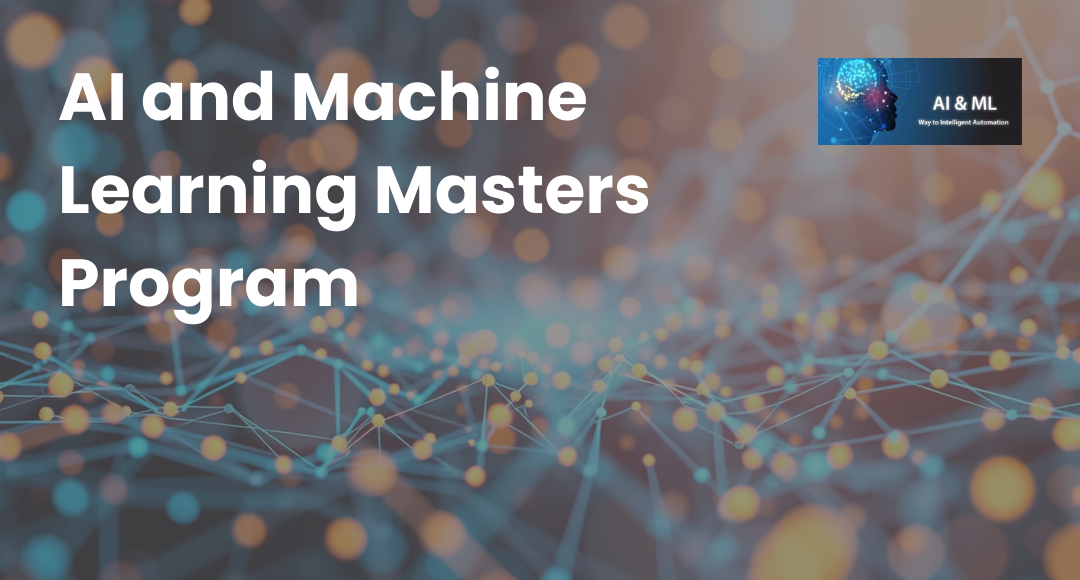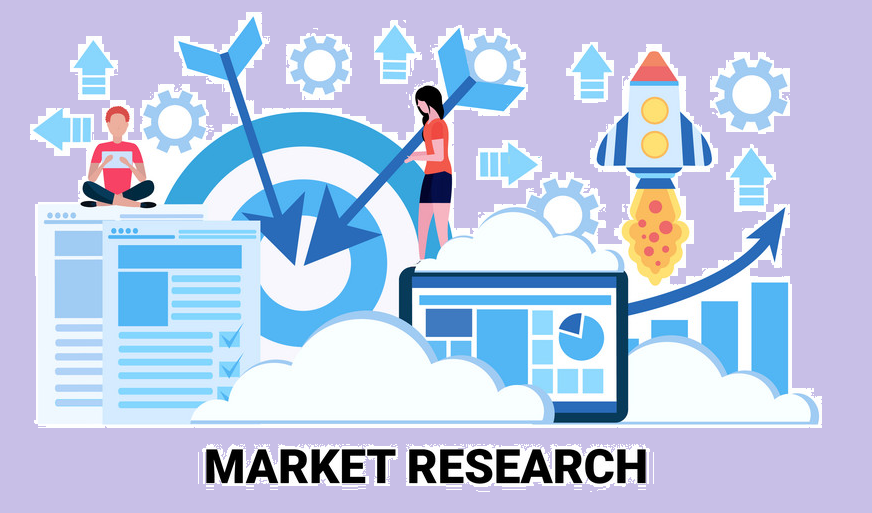What is a Metaverse? An In-Depth Guide to the VR Universe
-
 By Nchumbeni Yanthan
By Nchumbeni Yanthan
- Published on Jun 5 2024

Table of Contents
- What is a Metaverse? A Brief Introduction
- Quick Summary of Metaverse
- A Short History of the Metaverse
- Importance of the Metaverse
- How Does the Metaverse Work?
- Accessing the Metaverse
- Metaverse Technologies
- Metaverse Companies
- What Aims Does the Metaverse Serve Today?
- Benefits of a Metaverse
- NFTs in the Metaverse: Their Role Explored
- Conclusion
- FAQs
What is a Metaverse? A Brief Introduction
The term "metaverse" has attracted a lot of attention lately, attracted particular people's interest and triggered their own fascination. The future of Artificial Intelligence is and the metaverse is intertwined, as AI will play a crucial role in creating and enhancing immersive virtual experiences within the metaverse.
Users can connect with others in real-time while taking part in computer-generated surroundings in the metaverse.
This complete guide aims to have an in-depth understanding of the multiverse, its history, relevance, functioning, connect options, techniques involved, leading businesses, present apps, advantages, and the function of non-fungible tokens (NFTs) within this virtual universe.
Quick Summary of Metaverse
The metaverse is a virtual reality setting that allows to interact users with the other users as well as computer-generated surroundings in real time. It functions as a shared and immersive digital universe where users can explore, communicate, and participate in a variety of experiences.
The metaverse creates an environment where the only constraints are one's imagination and available technology by blending the lines between real life and virtual reality universe.
A Short History of the Metaverse
The science fiction book "Snow Crash" by Neal Stephenson, which was released in 1992, is where the idea of the metaverse first appeared. VR headsets would allow users to interact with one another and move around in a virtual world that Stephenson imagined.
Since then, a number of metaverse subtypes have been investigated in writing, film, and video games.
Early in the new millennium, platforms like "Second Life" and "World of Warcraft" were released, showcasing the possibility of simulated worlds, human engagement, and markets. These initial studies paved the way for the metaverse's creation and paved the way for advanced scientific and user experience advancements.

Importance of the Metaverse
In terms of a variety of fields, such as communication, education, entertainment, and business, the metaverse is incredibly significant. It provides a platform for individuals from various racial communicate and work geographic backgrounds to together, fostering a sense of the universal community.
The metaverse makes it possible for cross-cultural dialogue, team spirit, and the inquiry of novel possibilities by trying to overcome physical barriers.
From an economic perspective, the metaverse presents opportunities for businesses to create immersive experiences, reach wider audiences, and develop virtual economies. Virtual commerce within the metaverse allows for the creation, trade, and ownership of digital assets, opening up new revenue streams and business models.
How Does the Metaverse Work?
The metaverse is driven by a mixture of internet, virtual reality, and augmented reality technologies. It utilizes progress in haptic feedback techniques, blockchain technology, cloud services, and artificial intelligence to produce engaging user experiences.
Users have access the metaverse using a variety of devices, such as virtual reality headsets, goggles, cell phones, and computer systems. These tools serve as gateways into the digital universe and as channels for human input, giving customers a feeling of control and presence.
The metaverse varies depending on interconnected computers data and production plants that constantly store and process huge amounts of data. These technological frameworks make it possible to sync up user behavior, interrelations, and subject matter across various platforms, resulting in a seamless and coherent experience.

Accessing the Metaverse
Users require compatible equipment and internet connectivity in order to access the metaverse. By completely enveloping users in a virtual world, virtual reality headsets like the Oculus Rift or HTC Vive provide an immersive experience.
Microsoft HoloLens and Magic Leap are examples understanding of reality. smart glasses that overlay virtual objects on the real world to enhance users' More accessible entry points to the metaverse are offered by smartphones and computers with the necessary programs and applications.
Metaverse Technologies
Several technologies play crucial roles in the development and functioning of the metaverse:
1) Virtual Reality (VR): Virtual reality technology creates computer-generated three-dimensional environments, allowing users to interact with them using specialized headsets and controllers. VR immerses users in simulated worlds and forms a core component of the metaverse.
2) Augmented Reality (AR): This technology can enhance users' perception of their surroundings by superimposing virtual elements on the actual world. It facilitates the seamless integration of digital and physical environments, contributing to the metaverse experience.
3) Artificial Intelligence (AI): AI powers intelligent agents and non-player characters within the metaverse. It enhances user interactions, enables realistic simulations of human-like behavior, and adds depth to the virtual environment.
4) Blockchain Technology: In the metaverse, blockchain technology offers a secure and decentralized infrastructure for ownership and transactions. It makes it easy to produce, transfer, and and now own digital assets such as non-fungible tokens (NFTs) and digital currencies.
Metaverse Companies
A number of businesses are working on metaverse technologies and experiences. With a goal of creating the metaverse, Facebook's Meta (previously Facebook) is investing a lot of money in virtual and augmented reality technologies.
Likewise, Microsoft's Mixed Reality platform and HoloLens are making major breakthroughs in this field. Fortnite developer Epic Games is using its online multiplayer platform and game engine to investigate the metaverse.
Other notable players include Roblox, a user-generated content platform, and Unity Technologies, a leading provider of real-time 3D development tools. These companies, alongside others, are driving innovation in the metaverse, shaping the metaverse future prospects, and exploring its potential applications.
What Aims Does the Metaverse Serve Today?
The metaverse serves a multitude of aims in today's digital landscape. It acts as a hub for social interaction, enabling people to connect and communicate with others globally. Virtual events, concerts, exhibitions, and gaming experiences within the metaverse provide new avenues for entertainment and engagement.
In the realm of education, the metaverse offers immersive and interactive learning environments. Virtual classrooms, historical simulations, and scientific explorations provide unique educational opportunities, enhancing the learning experience.
Economically, the metaverse facilitates virtual commerce, allowing users to engage in transactions, own virtual assets, and participate in virtual economies. Virtual currencies and NFTs play crucial roles, creating digital scarcity and value, and enabling new forms of ownership and trade.
Benefits of a Metaverse
There are several benefits of the metaverse that make it an appealing prospect:
Global Connectivity: By transcending geographical boundaries, the metaverse connects individuals from diverse cultures and backgrounds, fostering global connections and collaborations.
Immersive virtual experiences: Users can delve into rich and immersive digital environments, pushing the boundaries of physical reality and engaging in unique experiences.
Unlimited Potential: The metaverse presents limitless possibilities for creativity, exploration, and innovation, catering to various interests and aspirations.
Economic Opportunities: Virtual commerce within the metaverse offers new avenues for entrepreneurship, revenue generation, and the creation of virtual marketplaces.
Enhanced Learning: The metaverse provides interactive and immersive educational experiences, revolutionizing traditional learning methods and making education more engaging and accessible.
Social Interaction: The metaverse allows individuals to connect, socialize, and collaborate with others, fostering social bonds and expanding networks.
NFTs in the Metaverse: Their Role Explored
Non-fungible tokens (NFTs) play a significant role within the metaverse. NFTs in the metaverse are unique digital assets that represent ownership of virtual items, artwork, or even real-world assets. In the metaverse, NFTs enable the creation, ownership, and trading of virtual assets, establishing digital scarcity and value.
NFTs can represent virtual land, in-game items, digital art, collectibles, and more. They empower creators to monetize their work, while users can own and trade unique digital possessions. NFTs also provide provenance and authenticity verification, ensuring transparency and trust within the metaverse economy.
Conclusion
A shared virtual universe where people can interact, explore, and create marks the metaverse as a frontier in the digital age. It has the power to redefine our relationship with technology and reshape entire industries.
The metaverse is on track to become a critical element of our online lives as technology develops and businesses invest in its growth. We can navigate this changing landscape and seize opportunities it provides by grasping its metaverse concepts, technologies, and possibilities.
Likewise, you can embrace the AI realm and embark on a transformative journey with Sprintzeal's comprehensive Artificial Intelligence Certification Training.
Discover all the courses Sprintzeal offers to advance your career. Chat with one of our course specialists for in-depth information and unwavering support.
You can also stay ahead of the curve in the fascinating world of AI and ML! Sign up for Sprintzeal's newsletters to receive the latest insights, trends, and breakthroughs straight to your inbox.
FAQs
Popular Programs
Artificial Intelligence Certified Executive (AICE) AI3090
Live Virtual Training
- 4.4 (650 + Ratings)
- 7k + Learners
Artificial Intelligence Foundation (AIF) AI3010
Live Virtual Training
- 4.3 (650 + Ratings)
- 14k + Learners
Certified Artificial Intelligence Expert (CAIE) AI3050
Live Virtual Training
- 4.5 (650 + Ratings)
- 10k + Learners
Certified Computer Vision Expert (CCVE) AI3080
Live Virtual Training
- 4.2 (650 + Ratings)
- 10k + Learners
Certified Deep Learning Expert (CDLE) AI3060
Live Virtual Training
- 4.4 (650 + Ratings)
- 40k + Learners
Certified Machine Learning Associate (CMLA) AI3020
Live Virtual Training
- 4.9 (650 + Ratings)
- 63k + Learners
Certified Natural Language Processing Expert (CNLPE) AI3070
Live Virtual Training
- 5 (650 + Ratings)
- 69k + Learners
Trending Posts
Future of AI with ISO 42001: Trends and Insights
Last updated on Aug 7 2024
Free Nano Banana Pro on ImagineArt: A Guide
Last updated on Nov 24 2025
Consumer Buying Behavior Made Easy in 2026 with AI
Last updated on Mar 21 2025
Ambient Intelligence: Transforming Smart Environments with AI
Last updated on Jan 12 2026
7 Amazing Facts About Artificial Intelligence
Last updated on Feb 11 2025
Top 15 Best Machine Learning Books for 2026
Last updated on Oct 4 2024
Categories
- Other 88
- Agile Management 48
- Cloud Computing 58
- Project Management 175
- Data Science 71
- Business Management 89
- Digital Marketing 89
- IT Service Management 36
- Programming Language 61
- AI and Machine Learning 94
- IT Security 113
- Quality Management 78
- IT Hardware and Networking 28
- Microsoft Program 5
- Workplace Skill Building 15
- Risk Management 10
- Information Security 8
- Leadership and Management 10
- Corporate Training and Development 1
Trending Now
Consumer Buying Behavior Made Easy in 2026 with AI
Article7 Amazing Facts About Artificial Intelligence
ebookMachine Learning Interview Questions and Answers 2026
ArticleHow to Become a Machine Learning Engineer
ArticleData Mining Vs. Machine Learning – Understanding Key Differences
ArticleMachine Learning Algorithms - Know the Essentials
ArticleMachine Learning Regularization - An Overview
ArticleMachine Learning Regression Analysis Explained
ArticleClassification in Machine Learning Explained
ArticleDeep Learning Applications and Neural Networks
ArticleDeep Learning vs Machine Learning - Differences Explained
ArticleDeep Learning Interview Questions - Best of 2026
ArticleFuture of Artificial Intelligence in Various Industries
ArticleMachine Learning Cheat Sheet: A Brief Beginner’s Guide
ArticleArtificial Intelligence Career Guide: Become an AI Expert
ArticleAI Engineer Salary in 2026 - US, Canada, India, and more
ArticleTop Machine Learning Frameworks to Use
ArticleData Science vs Artificial Intelligence - Top Differences
ArticleData Science vs Machine Learning - Differences Explained
ArticleCognitive AI: The Ultimate Guide
ArticleTypes Of Artificial Intelligence and its Branches
ArticleWhat are the Prerequisites for Machine Learning?
ArticleWhat is Hyperautomation? Why is it important?
ArticleAI and Future Opportunities - AI's Capacity and Potential
ArticleTop 10 Career Opportunities in Artificial Intelligence
ArticleExplore Top 8 AI Engineer Career Opportunities
ArticleA Guide to Understanding ISO/IEC 42001 Standard
ArticleNavigating Ethical AI: The Role of ISO/IEC 42001
ArticleHow AI and Machine Learning Enhance Information Security Management
ArticleGuide to Implementing AI Solutions in Compliance with ISO/IEC 42001
ArticleThe Benefits of Machine Learning in Data Protection with ISO/IEC 42001
ArticleChallenges and solutions of Integrating AI with ISO/IEC 42001
ArticleFuture of AI with ISO 42001: Trends and Insights
ArticleTop 15 Best Machine Learning Books for 2026
ArticleTop AI Certifications: A Guide to AI and Machine Learning in 2026
ArticleHow to Build Your Own AI Chatbots in 2026?
ArticleGemini Vs ChatGPT: Comparing Two Giants in AI
ArticleThe Rise of AI-Driven Video Editing: How Automation is Changing the Creative Process
ArticleHow to Use ChatGPT to Improve Productivity?
ArticleTop Artificial Intelligence Tools to Use in 2026
ArticleHow Good Are Text Humanizers? Let's Test with An Example
ArticleBest Tools to Convert Images into Videos
ArticleFuture of Quality Management: Role of Generative AI in Six Sigma and Beyond
ArticleIntegrating AI to Personalize the E-Commerce Customer Journey
ArticleHow Text-to-Speech Is Transforming the Educational Landscape
ArticleAI in Performance Management: The Future of HR Tech
ArticleAre AI-Generated Blog Posts the Future or a Risk to Authenticity?
ArticleExplore Short AI: A Game-Changer for Video Creators - Review
Article12 Undetectable AI Writers to Make Your Content Human-Like in 2026
ArticleHow AI Content Detection Will Change Education in the Digital Age
ArticleWhat’s the Best AI Detector to Stay Out of Academic Trouble?
ArticleAudioenhancer.ai: Perfect for Podcasters, YouTubers, and Influencers
ArticleHow AI is quietly changing how business owners build websites
ArticleMusicCreator AI Review: The Future of Music Generation
ArticleHumanizer Pro: Instantly Humanize AI Generated Content & Pass Any AI Detector
ArticleBringing Your Scripts to Life with CapCut’s Text-to-Speech AI Tool
ArticleHow to build an AI Sales Agent in 2026: Architecture, Strategies & Best practices
ArticleRedefining Workforce Support: How AI Assistants Transform HR Operations
ArticleTop Artificial Intelligence Interview Questions for 2026
ArticleHow AI Is Transforming the Way Businesses Build and Nurture Customer Relationships
ArticleBest Prompt Engineering Tools to Master AI Interaction and Content Generation
Article7 Reasons Why AI Content Detection is Essential for Education
ArticleTop Machine Learning Tools You Should Know in 2026
ArticleMachine Learning Project Ideas to Enhance Your AI Skills
ArticleWhat Is AI? Understanding Artificial Intelligence and How It Works
ArticleHow Agentic AI is Redefining Automation
ArticleThe Importance of Ethical Use of AI Tools in Education
ArticleFree Nano Banana Pro on ImagineArt: A Guide
ArticleDiscover the Best AI Agents Transforming Businesses in 2026
ArticleEssential Tools in Data Science for 2026
ArticleLearn How AI Automation Is Evolving in 2026
ArticleGenerative AI vs Predictive AI: Key Differences
ArticleHow AI is Revolutionizing Data Analytics
ArticleWhat is Jasper AI? Uses, Features & Advantages
ArticleWhat Are Small Language Models?
ArticleWhat Are Custom AI Agents and Where Are They Best Used
ArticleAI’s Hidden Decay: How to Measure and Mitigate Algorithmic Change
ArticleAmbient Intelligence: Transforming Smart Environments with AI
ArticleConvolutional Neural Networks Explained: How CNNs Work in Deep Learning
ArticleAI Headshot Generator for Personal Branding: How to Pick One That Looks Real
ArticleWhat Is NeRF (Neural Radiance Field)?
ArticleRandom Forest Algorithm: How It Works and Why It Matters
ArticleWhat is Causal Machine Learning and Why Does It Matter?
ArticleThe Professional Guide to Localizing YouTube Content with AI Dubbing
ArticleMachine Learning for Cybersecurity in 2026: Trends, Use Cases, and Future Impact
ArticleWhat is Data Annotation ? Developing High-Performance AI Systems
ArticleAI Consulting Companies and the Problems They Are Hired to Solve
ArticleWhy AI in Business Intelligence is the New Standard for Modern Enterprise
ArticleHow AI Enhances Performance in a Professional .Net Development Company
ArticleWhat is MLOps? The Secret Architecture Behind Scaling Elite AI Systems
ArticleFoundation Models Explained: How They’re Shaping the Future of AI
ArticleHow Quantum Computing and AI are Converging to Reshape Tech Careers
ArticleUsing AI-Powered Analytics In Expense Management For Certification Training Programs
Article











